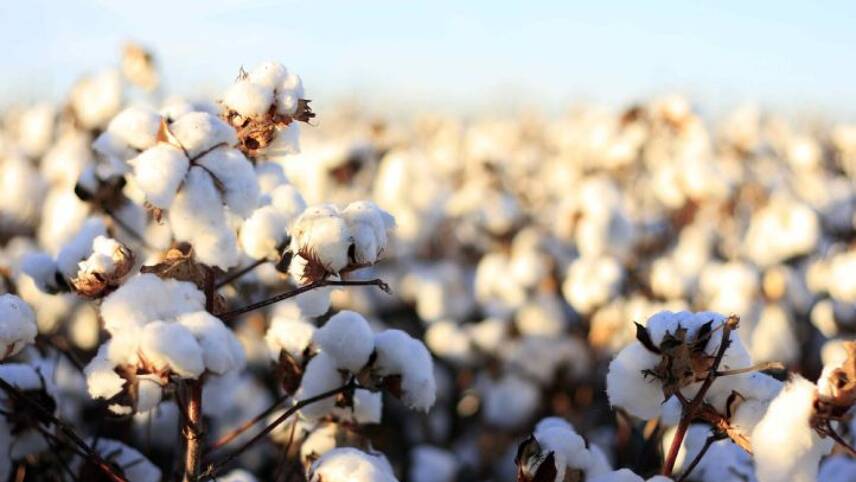Register for free and continue reading
Join our growing army of changemakers and get unlimited access to our premium content

The BCI-certified cotton sourced by fashion brands in 2018 was equivalent to 1.5 billion pairs of jeans
Posting an update on its 2020 goal of ensuring that cotton grown in line with its social and environmental standards accounts for 30% of global production, the BCI revealed today (14 March) that 93 fashion firms sourced a percentage of ‘Better’ cotton in 2018.
This coalition of companies collectively sourced 45% more certified cotton last year than in 2017, the BCI claims, largely due to new members joining and founding firms bolstering their sustainable sourcing strategies. Globally, this amount of cotton accounted for 4% of consumption during the 12-month period.
BCI participants include the likes of high-street giants Target, Gap, C&A and Marks & Spencer (M&S), as well as luxury brands, independent stores and cotton suppliers.
H&M Group, meanwhile, is the largest procurer of BCI cotton by weight, with certified and recycled cotton having made up 59% of its total cotton consumption last year. The Group, which also owns brands such as Arket and COS, has pledged to use only sustainably sourced or recycled fibres by 2030, as it strives to become a “truly circular” retailer.
“With our increased use of recycled or other sustainably sourced materials, we not only push the demand of widely used materials such as organic cotton, but also influence the scalability of new sustainable materials,” H&M Group’s environmental sustainability manager Cecilia Brännsten said.
“We hope to inspire other players in the industry towards a sustainable fashion future.”
Since the start of 2019, a further 15 fashion retailers and brands have become BCI members, taking the current total to 108.
From designer labels to eco-labels
The update from the BCI comes after a recent WWF study concluded that pursuing sustainable cotton could help businesses contribute to the Sustainable Development Goals (SDGs) and unlock new market opportunities by using credible voluntary sustainability standards. Such standards include Cotton Made in Africa (CMiA) and Fairtrade.
While these certification schemes have received widespread uptake across the fashion sector, other brands have opted instead to develop their own sourcing standards frameworks. Primark, for example, uses its internal Sustainable Cotton Programme to train farmers in agriculture techniques which minimise water and pesticide use, preserve soil quality and promote biodiversity while boosting yields.
Developed in partnership with sustainable agriculture organisation CottonConnect and local NGOs across India, Primark’s scheme first launched in 2013, covering 6,000 supply chain workers in Northern India. It has since undergone several expansions and now covers 28,000 farmers across Indian regions and Pakistan.
Despite this progress, WWF has previously warned that the wider fashion sector’s overall uptake of sustainable cotton has remained low, with few brands having set 100% targets or long-term goals.
Blockchain for better cotton
In related news, a coalition of fashion brands including C&A, PVH Corp and Kering recently unveiled plans to use blockchain to help bolster the transparency of their cotton supply chains, ensuring the raw materials, fabrics and garments they purchase can be verified as organic or sustainably produced.
The firms will work with agricultural blockchain startup Bext360, C&A’s charitable arm C&A Foundation, the Organic Cotton Accelerator and Fashion For Good to use the digital and ‘unbreakable’ audit chains offered by blockchain to track cotton as it moves from farm to processor for gin.
If this process proves successful, they will then use the technology to track post-gin cotton as it progresses through factories, shipping routes, warehouses and stores.
To ensure accurate tracking, Bext360’s technology uses machine vision, artificial intelligence (AI) and machine learning as well as blockchain. Its blockchain feature works by scanning on-product markers, unique to each item.
“With the work we have done to trace organic cotton from farm to gin, we are confident that in the next phase we will be able to make the leap from gin to consumer, eventually making it possible to swiftly and efficiently trace organic cotton straight from the farm to the consumer,” Bext360 founder Daniel Jones said.
“This is good for farmers, consumers and the entire industry.”
Sarah George


Please login or Register to leave a comment.